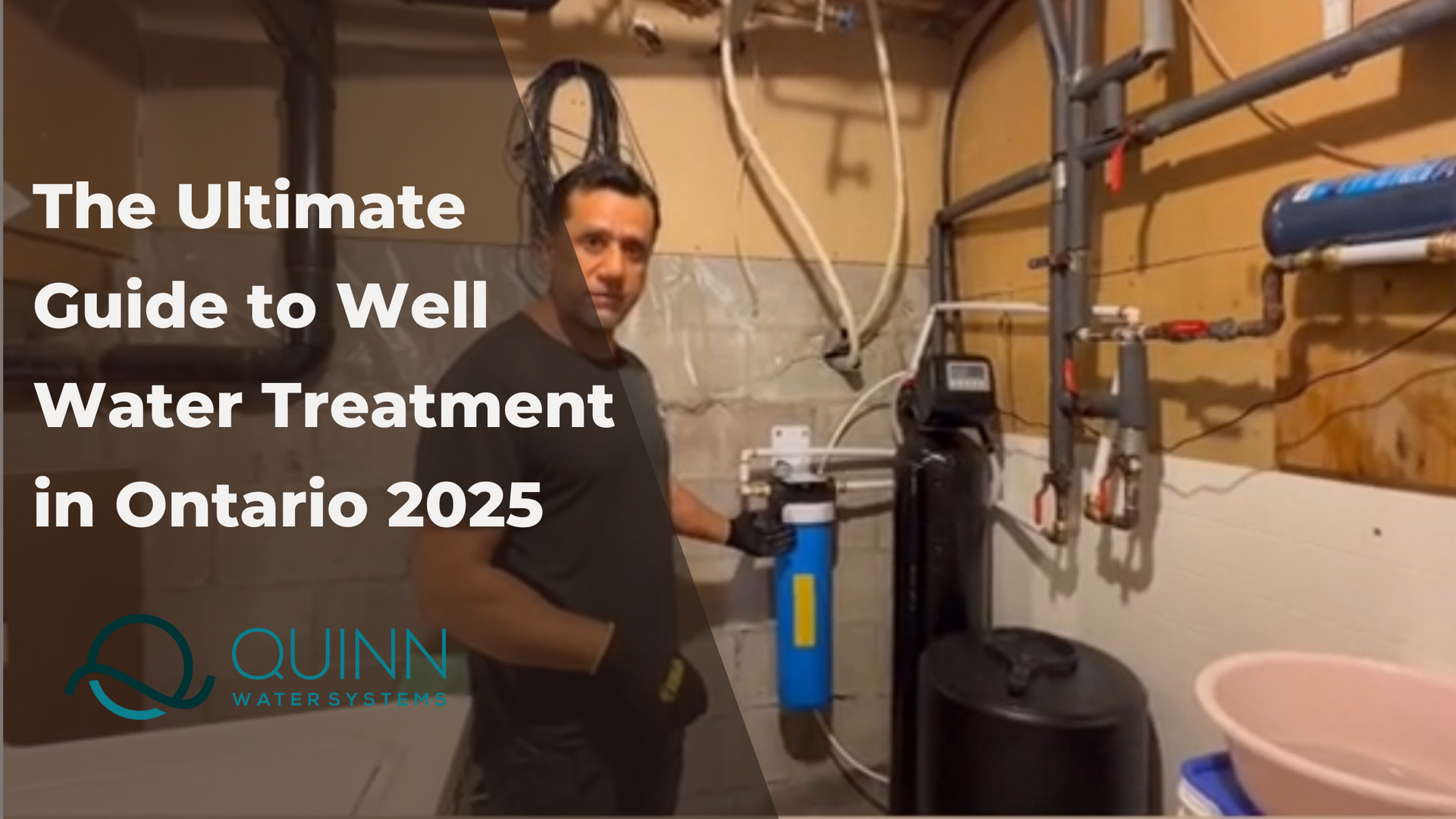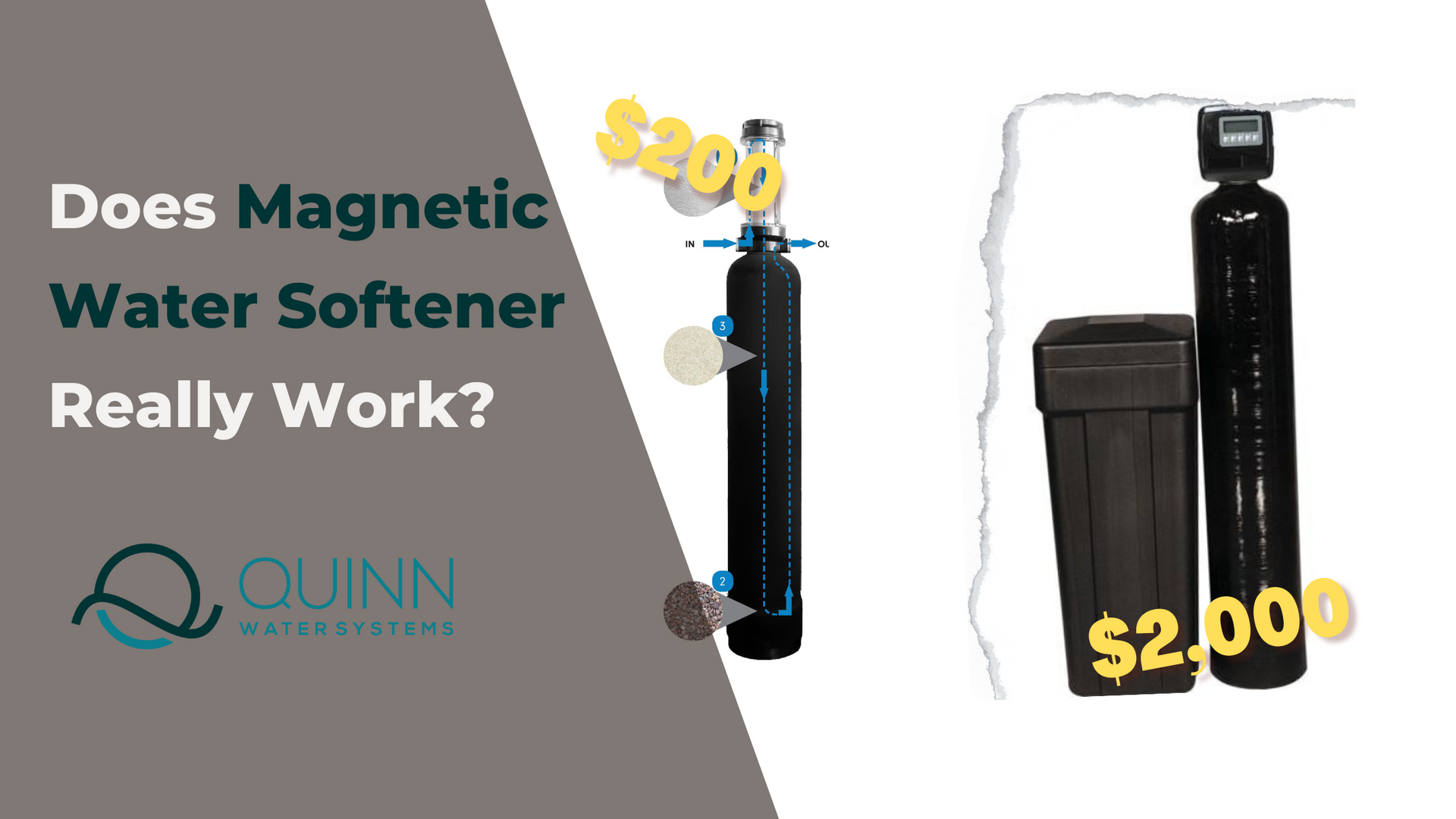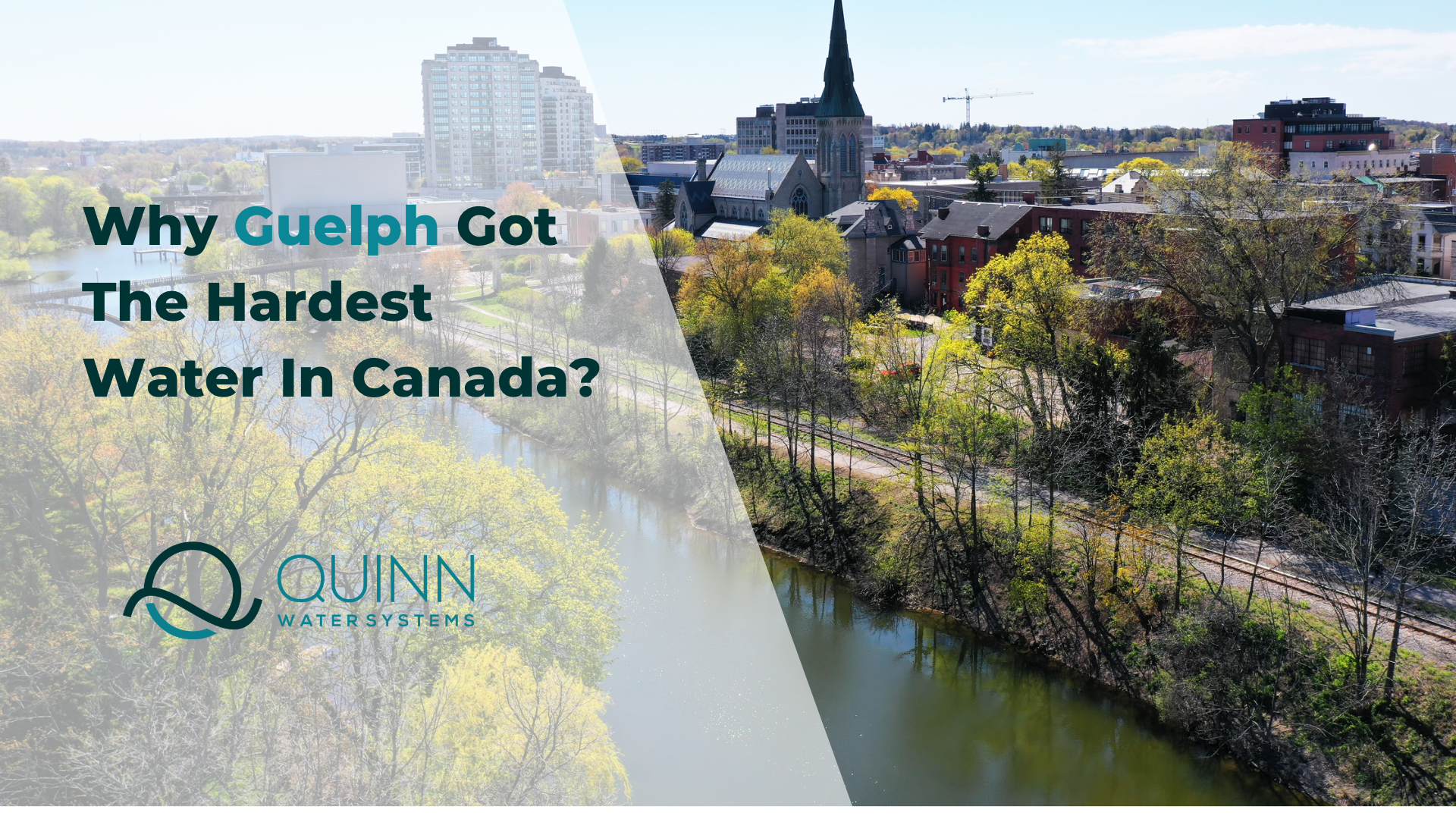Complimentary Well Water Inspection for New Customers
Commercial Reverse Osmosis vs. Traditional Filter: Which Is Right for Your Business?
Ensuring clean and high-quality water is essential for optimal operations, product quality, and customer satisfaction. When it comes to choosing the right filtration method, businesses often face the dilemma of selecting between commercial reverse osmosis and traditional filtration systems. In this blog post, we will explore the differences and considerations surrounding these two approaches to help you determine which is right for your business.

Understanding Commercial Reverse Osmosis
Quinn Water Systems offers high-capacity commercial reverse osmosis systems that cater to a wide range of industries such as coffee shops, cannabis farms, dental clinic , restaurants, food service, breweries, hotels, motels, car washes, window cleaning companies, and more. These systems are designed to provide businesses with the most pristine water possible by effectively filtering out harmful contaminants.
Definition and principles of reverse osmosis:
Reverse osmosis (RO) is a water purification process that utilizes a semipermeable membrane to remove impurities, particles, and dissolved solids from water. It works by applying pressure to the water, forcing it through the membrane while leaving behind contaminants.
How commercial reverse osmosis systems work:
Commercial reverse osmosis systems provided by Quinn Water Systems are designed to handle high-volume water filtration requirements. Before installation, a water analysis test is conducted to identify the specific contaminants present in the water. Based on the results, the system is customized to effectively target and remove these contaminants. The water is subjected to high pressure, which forces it through the semipermeable membrane, allowing only pure water molecules to pass through, while contaminants are flushed away.
Key benefits and advantages:
- Superior filtration and removal of contaminants: Commercial reverse osmosis systems excel at removing a wide range of impurities, including bacteria, viruses, chemicals, heavy metals, and dissolved solids. This ensures that the water used in your business processes is of the highest quality.
- Improved water quality and taste: By effectively removing impurities and pollutants, commercial reverse osmosis systems enhance the overall quality and taste of the water. This is particularly beneficial for industries such as food and beverage, where water purity is crucial for product consistency and flavor.
- Enhanced efficiency and cost savings: Using a commercial reverse osmosis system can lead to cost savings in the long run. By removing contaminants, the system reduces the need for frequent maintenance and replacements of equipment that may be affected by impurities. Additionally, the system's high efficiency allows for reduced water consumption, resulting in lower water bills.
- Potential for water reuse and conservation: Some commercial reverse osmosis systems can be designed to facilitate water reuse and conservation efforts. By effectively removing impurities, the treated water can be repurposed for various non-potable uses such as irrigation, cleaning, and flushing, thereby reducing water wastage and promoting sustainability.
By leveraging the expertise of Quinn Water Systems and their commercial reverse osmosis technology, businesses can benefit from superior filtration, improved water quality, cost savings, and potential water conservation initiatives. In the next section, we will delve into the world of traditional filtration methods and explore their characteristics.
Factors to Consider When Choosing
When deciding between commercial reverse osmosis and traditional filtration systems for your business, several factors should be taken into account:
Water quality analysis:
Conduct a thorough water quality analysis to understand the specific contaminants present in your water source. This analysis will help determine which method, reverse osmosis or traditional filtration, is more suitable for effectively removing those contaminants.
Required flow rate and capacity:
Consider the volume of water your business requires and the desired flow rate. Commercial reverse osmosis systems are capable of handling high-volume filtration needs, making them suitable for businesses with substantial water demands. Traditional filtration methods may have limitations in terms of flow rate and capacity, so assess whether they can meet your specific requirements.
Space availability and system footprint:
Consider the space available for installing the filtration system. Commercial reverse osmosis systems generally require more space due to their larger size and additional components such as storage tanks. Traditional filtration methods may offer more compact options, making them suitable for businesses with limited space.
Long-term scalability and flexibility:
Assess the scalability and flexibility of each filtration method to accommodate potential future growth or changes in your business needs. Commercial reverse osmosis systems can be designed to accommodate expansion and can be customized based on specific water quality requirements. Traditional filtration methods may have limitations in terms of scalability and adaptability.
Case Studies and Real-World Examples
Present successful examples of businesses using commercial reverse osmosis:
Highlighting how commercial reverse osmosis systems have benefited different industries can provide valuable insights into their effectiveness. Two specific examples are:
- Dental Clinic: Dental clinics require a reliable and consistent source of high-quality water for various procedures. A customized commercial reverse osmosis system can effectively remove impurities, ensuring the water used in dental treatments is free from contaminants. This helps maintain sterilization standards, improves patient safety, and enhances the overall quality of dental care.
- Window Washing Service: Window cleaning companies often encounter challenges with hard water, which can leave streaks and residue on windows. By utilizing a commercial reverse osmosis system designed for soft water production, these businesses can ensure spotless and streak-free windows. The system removes minerals and impurities from the water, resulting in superior cleaning results and satisfied customers.
Highlight scenarios where traditional filtration systems are preferred
While commercial reverse osmosis systems offer comprehensive filtration capabilities, there are situations where traditional filtration methods may be more suitable:
- Businesses with simpler water quality requirements: Some businesses may have water sources that require basic filtration without the need for extensive contaminant removal. Traditional filtration methods, such as carbon filter or sediment filters, can effectively address these simpler needs at a more affordable cost.
Compare the outcomes and benefits achieved by different businesses:
By comparing the outcomes and benefits experienced by businesses using commercial reverse osmosis systems versus traditional filtration methods, we can better understand their respective advantages:
- Dental Clinic: Implementing a customized commercial reverse osmosis system ensures the delivery of pure, contaminant-free water, providing a safe and sterile environment for dental procedures. This leads to improved patient satisfaction, increased trust, and better overall dental care outcomes compared to traditional filtration methods.
- Window Washing Service: Utilizing a commercial reverse osmosis system designed for soft water production allows window washing companies to achieve streak-free and spotless results, enhancing their reputation for providing exceptional cleaning services. Traditional filtration methods may not effectively address the issues caused by hard water, leading to subpar cleaning results.
These examples illustrate how commercial reverse osmosis systems can be tailored to meet specific business needs. Whether it's a dental clinic requiring sterile water or a window washing service needing soft water for optimal cleaning, customized commercial reverse osmosis systems offer targeted solutions to address unique requirements.
By examining case studies and real-world examples, businesses can gain insights into how commercial reverse osmosis systems have successfully met specific needs and compare them to scenarios where traditional filtration methods may be preferred. In the next section, we will summarize the key points discussed and provide guidance on making the right decision for your business.

Making the Decision: Which Is Right for Your Business?
Investing in the right water treatment solution is crucial for the success of your business. Consult with water treatment professionals, such as Quinn Water Systems, who can provide personalized advice tailored to your unique needs. By assessing factors like water quality, flow rate, cost, space availability, scalability, and specific business requirements, they can guide you in selecting the optimal filtration system. Prioritizing water quality and making an informed decision will ensure clean and reliable water, paving the way for your business's success.
Trust the experts at Quinn Water Systems to help you achieve your goals!
Ready to upgrade your business's water filtration system?
We will get back to you as soon as possible.
Please try again later.
Blog Posts
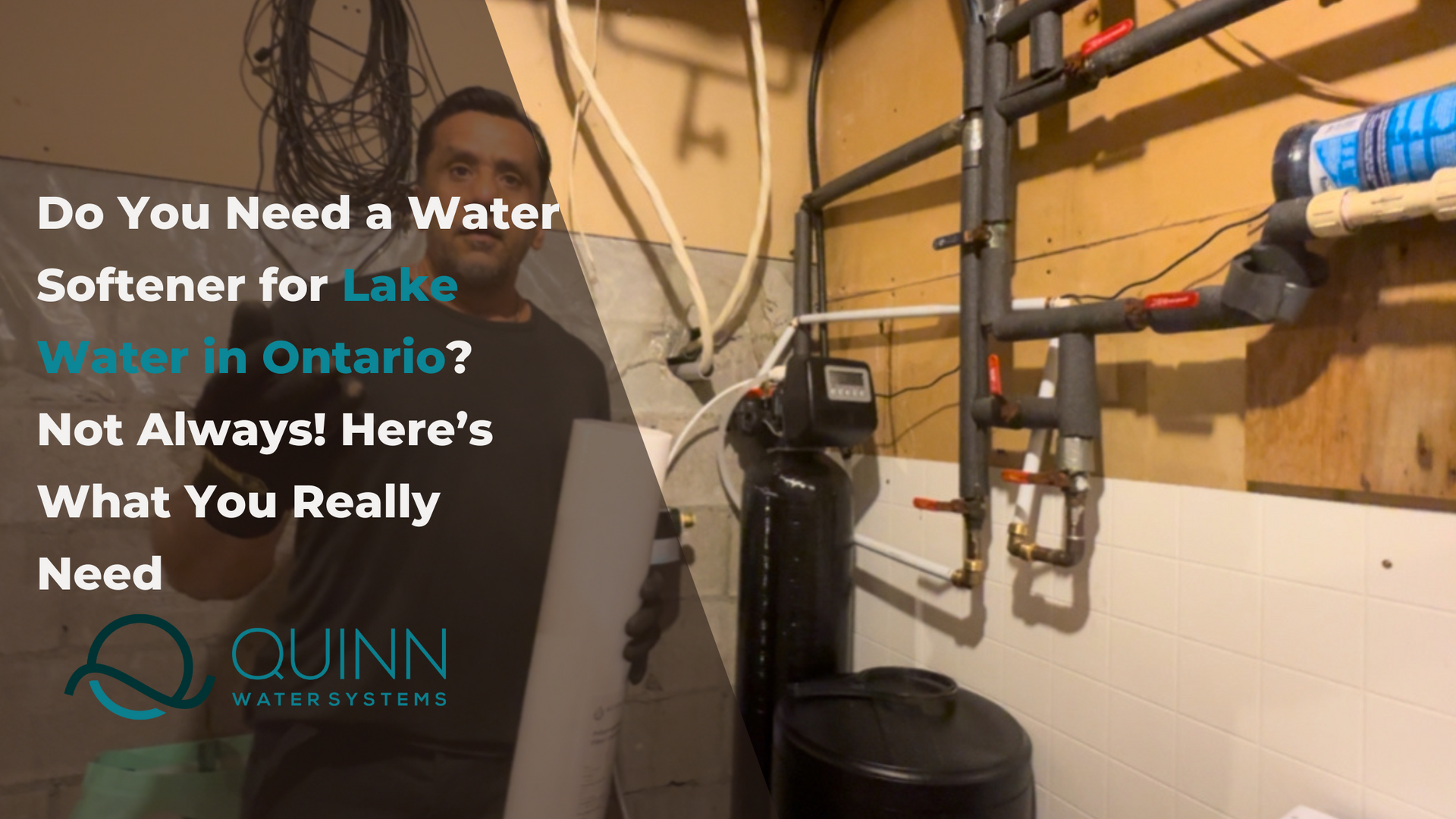
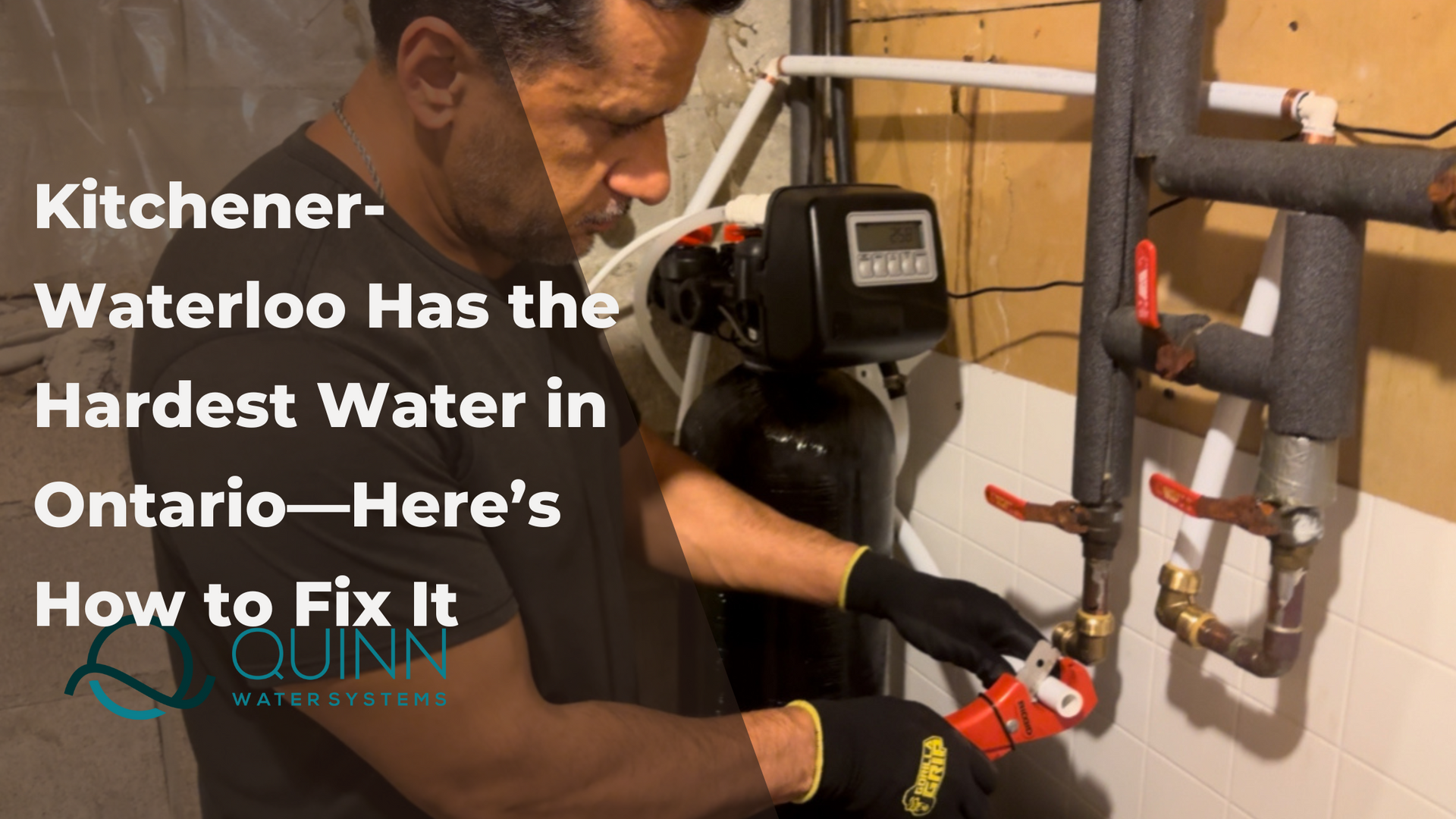
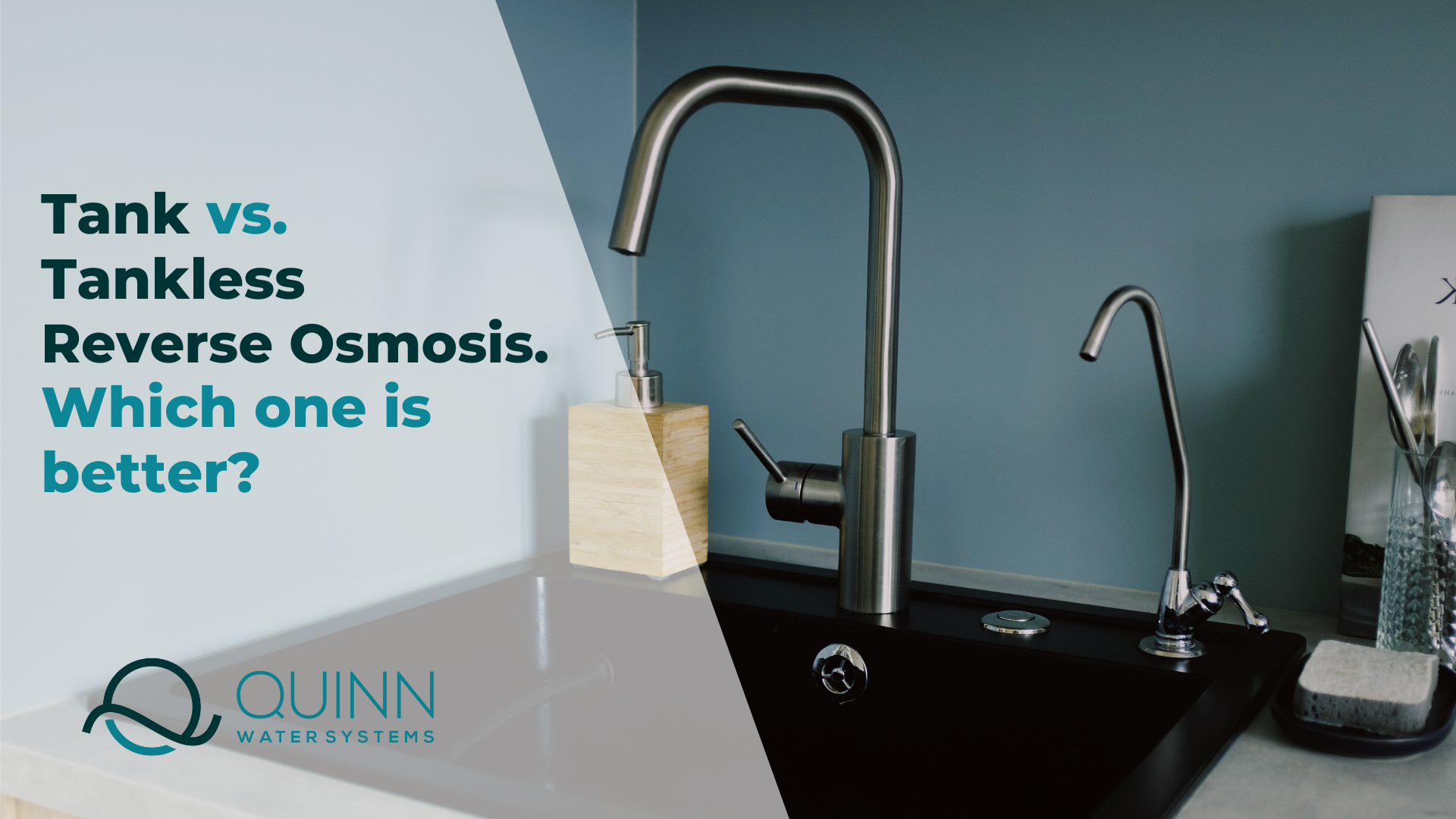
Get Your Water Done RIGHT!
About Us
Client Portal
Client Hub is set up for our clients approve quotes, check appointment details, pay outstanding invoices, print receipts, or request more work-all in one place.
Payment Options


